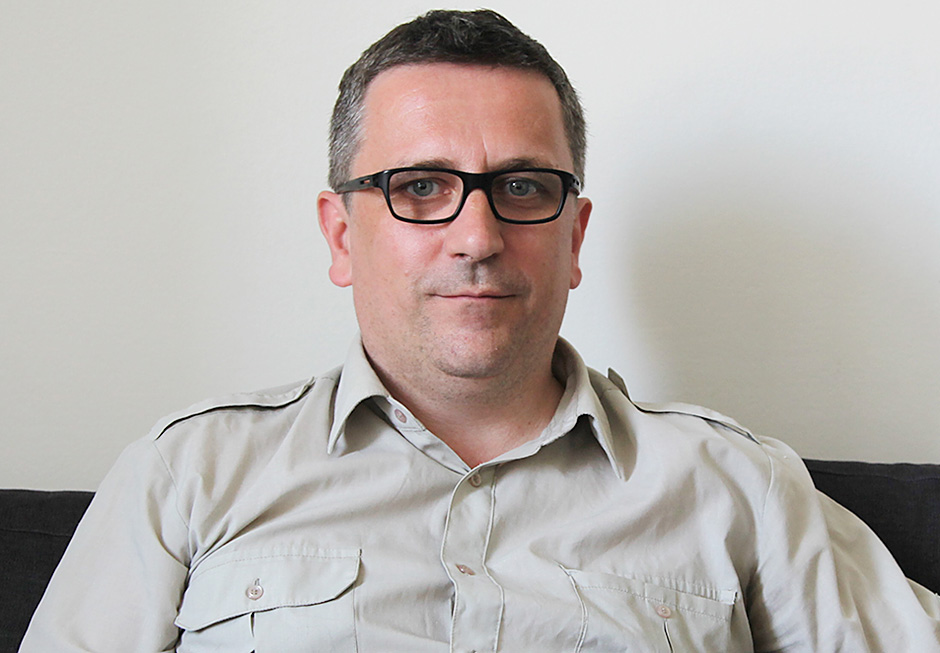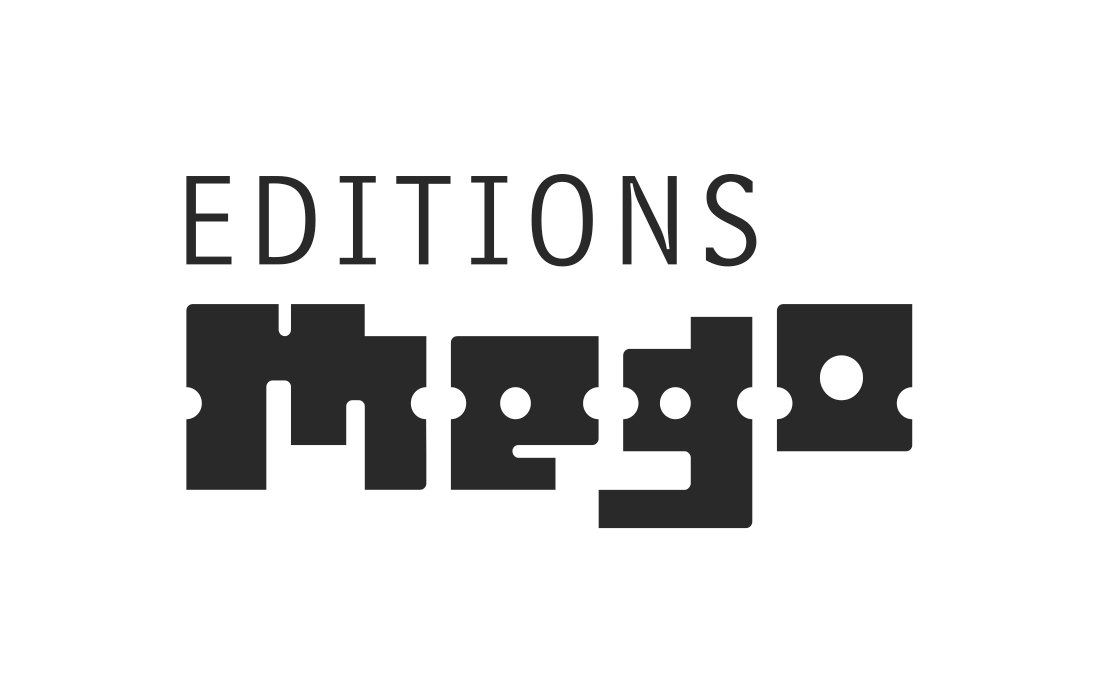 Nuovo appuntamento con le interviste ai personaggi chiave che si celano “dietro” le etichette musicali (se vi siete persi le puntate precedenti cliccate qui) per scoprire le scelte artistiche che muovono alcune tra le migliori realtà internazionali in ambito elettronico. In questa puntata abbiamo intervistato Peter Rehberg (Pita) nelle vesti di fondatore della Editions Mego, l’etichetta austriaca che ha radici profonde nell’avanguardia elettronica lungo l’asse immaginifico Vienna–Londra–Chicago. Tenete d’occhio questa label perché sarà anche ospite d’onore alla prossima edizione catalana del Sónar Festival.
Nuovo appuntamento con le interviste ai personaggi chiave che si celano “dietro” le etichette musicali (se vi siete persi le puntate precedenti cliccate qui) per scoprire le scelte artistiche che muovono alcune tra le migliori realtà internazionali in ambito elettronico. In questa puntata abbiamo intervistato Peter Rehberg (Pita) nelle vesti di fondatore della Editions Mego, l’etichetta austriaca che ha radici profonde nell’avanguardia elettronica lungo l’asse immaginifico Vienna–Londra–Chicago. Tenete d’occhio questa label perché sarà anche ospite d’onore alla prossima edizione catalana del Sónar Festival.
Il progetto Editions Mego nasce nel 2006 proseguendo il discorso artistico avviato nel 1994 dalla label Mego e si pone come baluardo di un’elettronica d’avanguardia che non ha confini precisi ma piuttosto è caratterizzata dall’attitudine degli artisti coinvolti a superare i linguaggi convenzionali della musica. Può andare bene come istantanea dell’etichetta?
Si, più o meno si tratta di questo. Una cosa a cui tengo è l’essere non catalogabili.
Otomo Yoshihide definì i dischi degli esordi della Mego come “brand new punk computer music”. Una dichiarazione sicuramente affascinante, non credi?
Sono sempre stato un po’ dubbioso riguardo al collegamento con il punk, per il fatto che questo genere di musica non mi è mai davvero piaciuta, né alla fine degli anni ’70 men che meno oggi. Immagino però che volesse intendere che avevamo – e spero di averla ancora oggi – un’attitudine ad essere liberi da qualsivoglia preconcetto.
Dal 2006 sei il responsabile unico del progetto, quanti rischi ti sei preso e com’è nata questa tua voglia di gestire attivamente l’etichetta?
Posso dirti che di rischi se ne corrono in continuazione. Non avevo l’intenzione di occuparmi direttamente io di tutto, ma ad un certo punto è diventata una necessità. A metà degli anni 2000 l’etichetta ha iniziato, per varie ragioni, a trovarsi in serie difficoltà, è allora che ho pensato che sarebbe stato un peccato gettare la spugna e così sono stato l’artefice principale del nuovo corso.
Avevi un’idea di fondo chiara su cosa fare oppure inizialmente volevi semplicemente proseguire il lavoro della Mego?
Un pochino di entrambi gli elementi.
Avere delle etichette associate come Spectrum Spools, Ideologic Organ e Sensate Focus è sicuramente utile per proporre un ventaglio sonoro più vario, ma ci sono anche altre motivazioni alla base di questa scelta?
L’idea principale che sta dietro a questa sorta di famiglia allargata è venuta fuori quando ho chiesto sia a Stephen O’Malley che a John Elliott di lavorare ad un nuovo disco per me, è allora che mi è venuta l’idea di proporre loro la direzione artistica di queste etichette sorelle, entrambi amano una larga fetta di musica che è un peccato non far ascoltare al nostro pubblico. Naturalmente tutto questo allarga i nostri orizzonti sonori e può creare spaesamento al di fuori, considerate le numerose uscite, ma basta saper unire i puntini. Poi mi sono messo in contatto anche con Francois Bonnet del GRM (Groupe De Recherches Musicales NDR) per pubblicare ristampe del suo catalogo. Così è nata anche la serie Recollection GRM che mi sta dando belle soddisfazioni.
Nella gestione di un’etichetta come la tua conta più la programmazione oppure l’istinto?
50 e 50.
Nella tua esperienza com’è cambiata l’industria discografica nel tempo?
Non credo sia cambiata più di tanto. Le modalità di produzione di un disco sono rimaste le stesse. Gli strumenti ed i formati possono cambiare ma il come una cosa va fatta è rimasto immutato. Ad esempio vent’anni fa questa intervista sarebbe stata fatta via fax. Stessa intervista, strumenti diversi.
C’è un osservatorio dove tieni d’occhio nuovi talenti? Ce ne sono parecchi in etichetta, immaginiamo non sia facile sceglierne di veramente validi con la sovraesposizione odierna.
Hai ragione non è facile, ma è questo il bello.
C’è una tua scelta strategica operata nell’etichetta della quale vai particolarmente fiero?
Sono fiero di tutte le decisioni che ho preso.
Dacci una manciata di brani per comprendere al meglio l’evoluzione della Editions Mego fino ad oggi.
Vi consiglio di andare direttamente sulla nostra pagina SoundCloud.
Quest’anno la Editions Mego sarà ospite al Sónar Festival, dove verranno proposte delle esibizioni che serviranno a riassumete questa bella avventura. Ci racconti com’è nata questa opportunità e cosa dobbiamo aspettarci da essa?
Il Sónar è stato uno dei primi festival internazionali ad invitarci, dalla fine degli anni ’90 ai primi 2000 c’è sempre stata qualche esibizione in rassegna che avesse a che fare con la Mego. Ci è sembrato naturale esserci in occasione della celebrazione dei nostri primi 20 anni. Si esibiranno LCC, Klara Lewis, Russell Haswell, KTL e Voices From The Lake.
Programmi per il prossimo futuro? Magari puoi svelarci qualche gustosa novità.
Attualmente sono in lavorazione produzioni di Michel Redolfi, Voices From The Lake, Beatriz Ferreyra, Thomas Brinnkmann, Chra, Ilpo Väisänen, Thighpaulsandra, Robin Fox, Container, When, Shit & Shine, Klara Lewis, Anthony Child e altri. Vedranno tutti la luce nel 2015 ma ancora non so le date precise. Inoltre ci saranno i festeggiamenti itineranti in giro per il mondo di Mego 20, oltre alla ristampa del primissimo disco pubblicato a firma General Magic & Pita.
English Version:
New round of interviews with key people that act “beyond” the music labels (if you missed the previous ones click here) to discover the artistic choices that moves some of the best international brands in the field of electronics. In this episode we interviewed Peter Rehberg (aka Pita) in the role of Editions Mego’s manager, the Austrian label that has deep roots in vanguard electronics along the Vienna-London-Chicago route. Keep an eye on this label because it will also be guested at the next Catalan edition of Sónar Festival.
Editions Mego was founded in 2006 continuing the artistic journey started in 1994 by the label Mego and stands as a bulwark of experimental electronic music that has no clear borders but rather is characterized by the attitude of the involved artists to overcome conventional music languages. Can this snapshot fit with the label?
Yes, that’s more or less it. One things I wanted was that the label is not genre specific.
Otomo Yoshihide called Mego’s early catalogue as “brand new computer punk music”. Surely a fascinating declaration, isn’t it?
I have always been a bit unsure about the punk link, as I don’t really have interest in punk music, neither back in late 70s or now. I would imagine what he meant was we did have and hopefully still do have a single minded independent DIY spirit.
Since 2006 you are the solo director of the project, how many risks you took and how did you get the idea to actively manage a label?
Oh, there is always risks, that’s kind of the point. It was not so much an idea to actively manage the label, but of necessity. In mid 00’s the label ran into difficulties for various reasons, I thought it would be a shame to juts throw in the towel, and started afresh on my own.
In the beginning you had a background idea of what to do, or you just want to continue Mego’s tale?
A bit of both.
To have associated labels as Spectrum Spools, Ideologic Organ and Sensate Focus is certainly functional to propose a more varied music range but there are also other reasons for this choice?
The main idea behind starting the family of labels was instead of asking Stephen O’Malley or John Elliott to do another record for me, I thought I’d ask them to curate a label, as both have enthusiasm for a wide range of music that needs an avenue to be heard. Of course this creates a vast web of releases, that when looked at it might be hard to find a connection, but its there. I then approached Francois Bonnet at GRM about reissuing selected works from the GRM archive. This ended up being the Recollection GRM series which is still ongoing.
In the management of a label like yours is more important to program or to follow the instinct?
Both.
In your experience how much has changed the music industry?
Actually not that much has changed. The actually things to do in getting a release together remain the same. The tools and formats may have changed, but what needs to be done has not. For example, 20 years ago this interview would have been done via fax. Same interview, different tools.
Do you have an observatory where you keep an eye out for new talents? We can find several of them on the label, we imagine it is not easy to choose a truly valid one with today overexposure.
That’s right its not easy, but who said it should be easy?
Can you reveal to us one of your strategic choice inside the label of which you are particularly proud of?
I am proud of it all!
Give us a handful of tracks to better understand the evolution of Editions Mego to date.
I would suggest to visit the SoundCloud page.
This year the label is invited at Sónar Festival to offer live sets and go over the main points of this wonderful adventure. Can you tell us how this collaboration took place and what can we expect from it?
Sónar was one of the first international festivals to invite us, and throughout the late 90s and early 00’s there was always some kind of Mego activity present at the festival. It seemed only natural to approach the festival for the a Mego 20 showcase. The line up will be LCC, Klara Lewis, Russell Haswell, KTL and Voices From The Lake.
Plans for the near future? Maybe you can tell us some tasty news.
Currently working on productions with Michel Redolfi, Voices From The Lake, Beatriz Ferreyra, Thomas Brinnkmann, Chra, Ilpo Väisänen, Thighpaulsandra, Robin Fox, Container, When, Shit & Shine, Klara Lewis, Anthony Child and so on. These will see the light of day sometime in 2015. As well a number of Mego 20 showcases around the world there will also be a reissue of the very first Mego release by General Magic & Pita.


